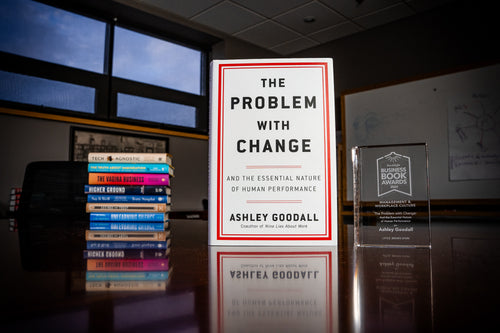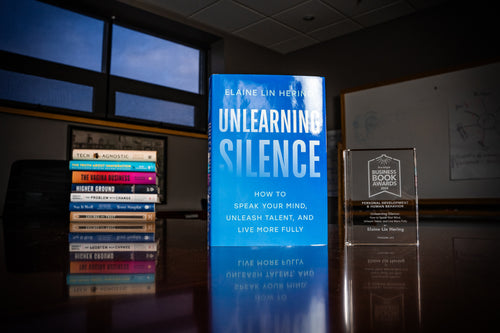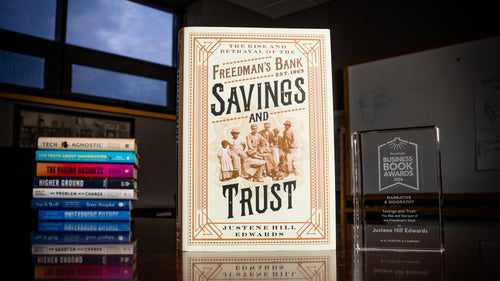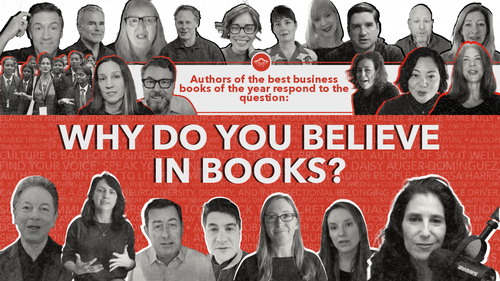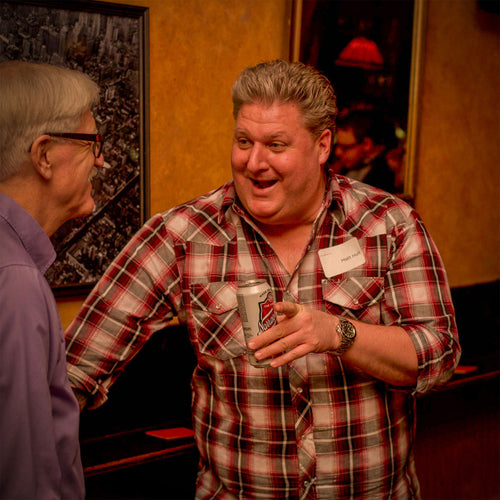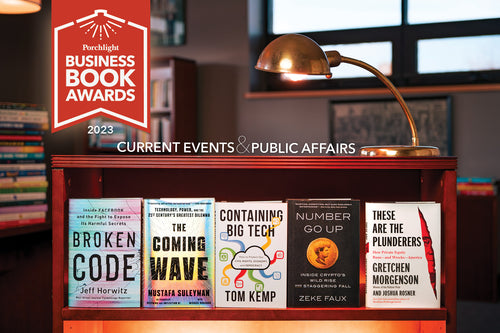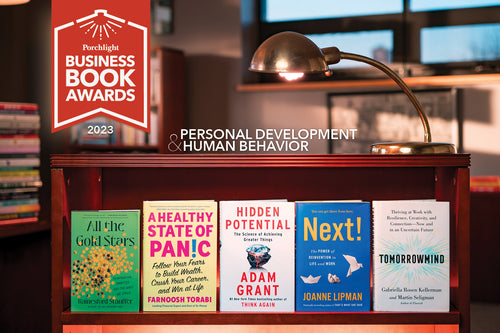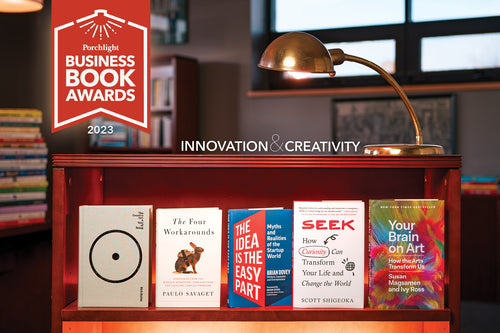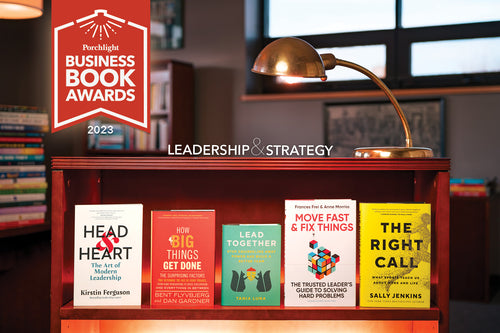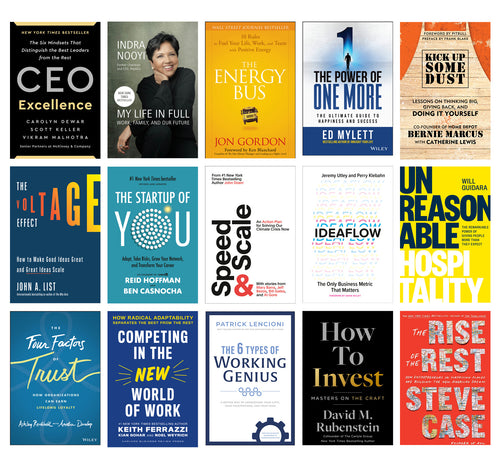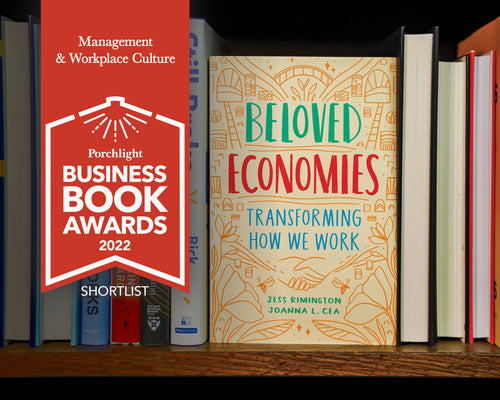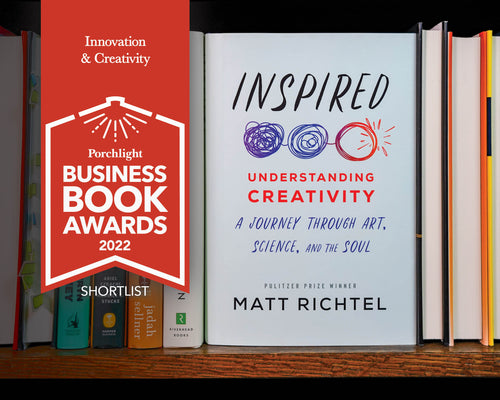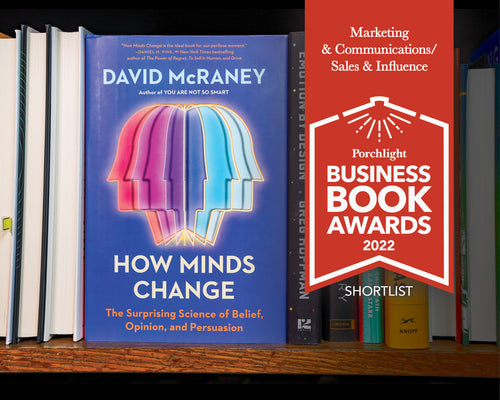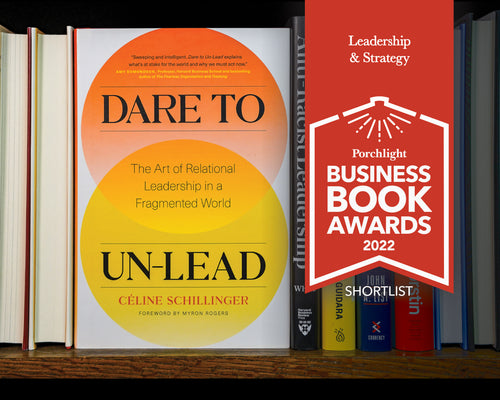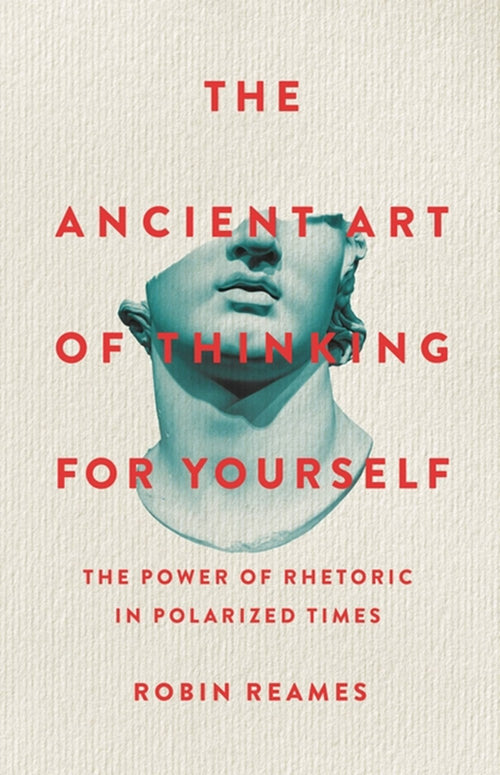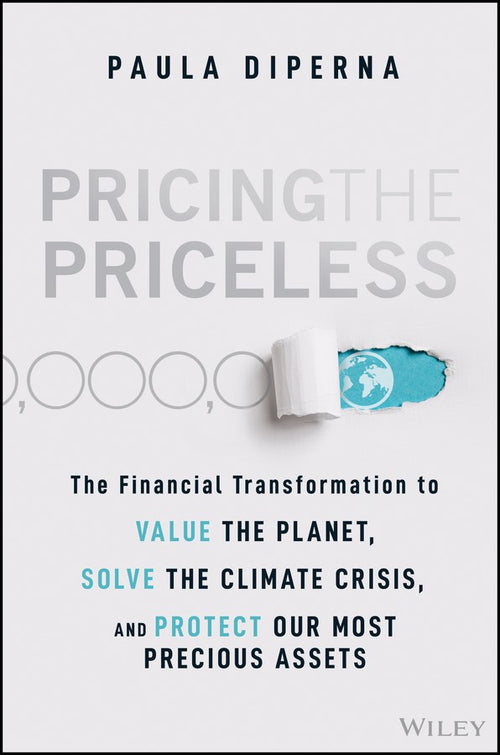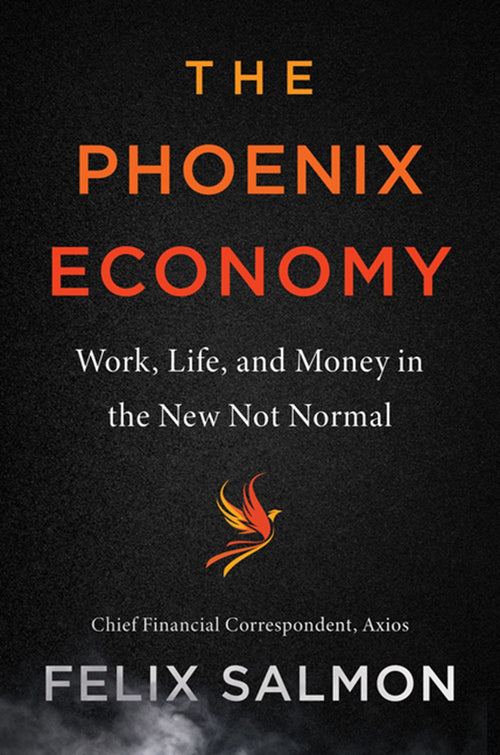The 2023 Porchlight Business Book Awards | Marketing & Communications/Sales & Influence
We expanded the Marketing & Sales category last year to include communications and influence because we felt it helped broaden its purview to include professionals who work outside of the for-profit, corporate world. As I wrote at the time, “the term 'Marketing & Sales' didn’t seem to fully capture the full range we were seeing submitted in that category—the important research and real-world actions taken to connect and converse with people, to influence and persuade, to move and shape conversations and emotions across a wide spectrum of professions.” We wanted the category to include books that would help people who work on fundraising, canvassing, advocacy work, even campaigns for public office.
There is another, almost opposing phenomenon to the category, though. While the category often feels too narrow, when we find a genuinely great book in the category, it is almost universal. That is because every one of us has times in our lives when we need to influence others. Whether we’re trying to get someone to buy a used car or trying to get our kids to brush their teeth without a fuss, the art of persuasion boils down to clear and effective communication. Because of that, many of the books that find their way into this expanded category could fit in many others, but all five of the following books find a happy home here in Marketing & Communications/Sales & Influence.
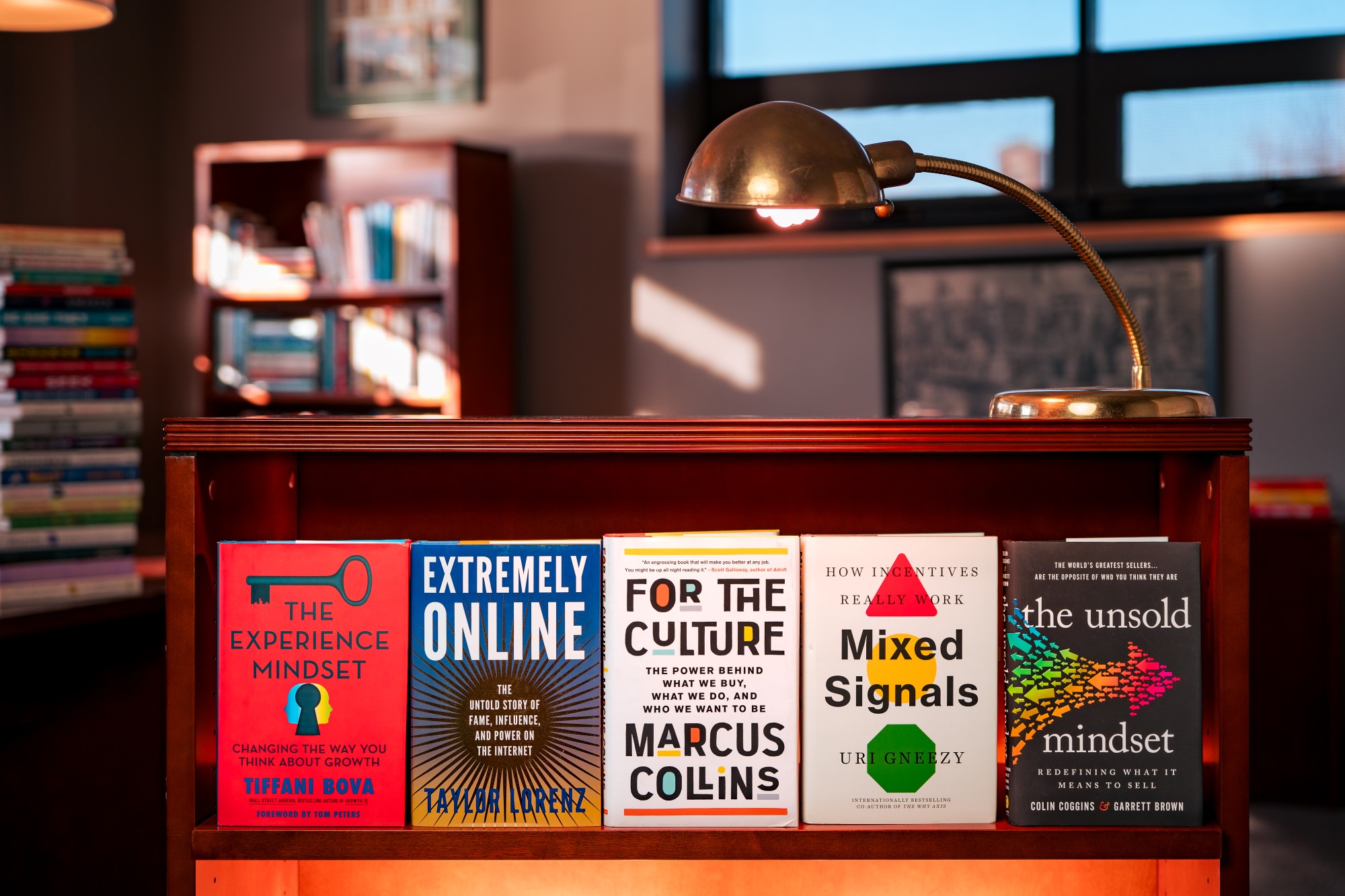
The Experience Mindset: Changing the Way You Think about Growth by Tiffani Bova, Portfolio
Tiffani Bova's follow-up to her bestselling Growth IQ could have easily fit in Leadership & Management or Management & Workplace Culture. The reason it sits squarely in our Marketing & Communications/Sales & Influence category is that it is, ultimately, about customer engagement and acquisition. The best way to improve the customer experience, however, may be by “removing the myopic obsession with customer experience” and focusing at least as much on employee experience. This is, as Bova notes, something many leaders profess:
Southwest’s Herb Kelleher once said, “If you treat your employees right, guess what? Your customers come back, and that makes your shareholders happy. Start with employees and the rest follows from that.” Sir Richard Branson, founder of Virgin Group, concurred: “If you take care of your employees, they will take care of the clients.” Or, as Anne M. Mulcahy, former CEO and chairperson of Xerox, said, “Employees who believe that management is concerned about them as a whole person—not just an employee—are more productive, more satisfied, more fulfilled. Satisfied employees mean satisfied customers, which leads to profitability.”
In short, all of these uber-successful business leaders are saying the same thing: if you want happy customers, start with your employees.
So it has been said before, but this book-length treatment from an author who has put this philosophy into practice in her professional life—and knows all the pain points of doing so—offers a wealth of applicable ideas and knowledge.
Extremely Online: The Untold Story of Fame, Influence, and Power on the Internet by Taylor Lorenz, Simon & Schuster
Taylor Lorenz has been writing authoritatively about the internet for a very long time. She was one of the first technology reporters to focus on online culture and creators rather than internet companies. She has been writing about how human beings have used the internet to gain influence since before the term influencer existed. That makes her better positioned than anyone to author the definitive book on the topic, which she has delivered in Extremely Online. Lorenz doesn’t ignore the dark and disturbing sides of online life. Some of the people she profiles, especially young women, have received so much abuse and harassment that they have left online life altogether—at least as much as one can these days. But to make a living now requires, for most of us, using the internet and engaging online with others online. Understanding the culture there is an enormous benefit, and there is no better internet anthropologist than Taylor Lorenz. At a time when the grasp of Big Tech seems so tight on our lives, one of the key takeaways for me was that we are all co-creating the future, that each of us has an influence.
We’ve seen how much the internet has changed in the twenty-first century so far, and how much we’ve changed as a result. This transition is accelerating as the online and offline worlds merge. A lone user can redirect a platform overnight, and technology founders almost never foresee how their creations end up being used.
The struggle continues to be for us to use technology and not let it abuse us. To do that, we need to understand that we are actively building and creating the internet every time we engage with it, and to be mindful of the influence we have—however large or small—when we log on. And try not to feed the trolls.
READ AN EXCERPT FROM THE BOOK HERE.
For the Culture: The Power Behind What We Buy, What We Do, and Who We Want to Be by Marcus Collins, PublicAffairs
Marcus Collins has worked for Beyonce and the Brooklyn Nets, Weiden + Kennedy, Apple, and at an advertising agency founded by Steve Stoute and Jay-Z. Those Cliff Paul/Chris Paul commercials for State Farm? That was the work of Dr. Collins. To do that work, he has learned from the work of Dan Ariely and George Loewenstein, Daniel Kahneman and Marshall McLuhan, and many others. His book For the Culture calls upon all that work to help us understand how culture influences people, and how we can tap into that in our own work.
Culture supersedes all these product differentiators because it does not revolve around what a product is. Culture focuses on who we are.
Collins knows the reason Beats by Dre headphones became more popular than Bose, despite being sonically inferior headphones, and why hipsters gravitated toward Pabst Blue Ribbon beer, despite it being a substandard adult beverage. (I write that as a proud Milwaukeean who is not unfamiliar with the taste of Pabst—or the company’s complicated history here—only with the prices people have paid for it in bigger cities.) Whatever you’re offering, in whatever industry you work in, it is important to remember to focus on people rather than the product.
Whether it be B2B (business to business) or B2C (business to consumer), it makes no difference because it’s all P2P (person to person). And no force influences people more consistently than culture.
It is not about trying to get people to buy things, but about building a culture. That is what persists, and what we remember.
READ AN EXCERPT FROM THE BOOK HERE.
Mixed Signals: How Incentives Really Work by Uri Gneezy, Yale University Press
Uri Gneezy’s Mixed Signals is a book that could easily have landed in a category dedicated to leadership, or management, or even to human behavior. Because it is how to use incentives to shape others’ behavior, we placed it comfortably in our category dedicated to communication and influence. But to be clear, this book will be as useful to the CEO of a company as the CMO, to those in management and human resources as it is to those in the sales force. It is equally applicable when looking inward as it is to reaching out. Indeed, it offers an insightful and entertaining look at how human behavior is shaped whether you are in business or not. I really can’t think of anyone who would not benefit from what it teaches.
The lessons range from how to handle the messaging around peak pricing to how to structure incentives for public health initiatives. “Incentives,” Gneezy writes, “aren’t inherently good or bad. It’s the way we choose them that’s either moral or not.” It, once again, comes back to culture.
Incentives can change the culture by changing the payoffs.
That is true whether it has to do with the tax codes of a country or the conduct of individuals within a company. The signals we send, and the incentives we structure, can help sell a cold drink better on a hot day, or help lower carbon emissions to lessen the number of hot days we have. Uri Gneezy’s Mixed Signals can assist in doing it all more deliberately and effectively.
READ AN EXCERPT FROM THE BOOK HERE.
The Unsold Mindset: Redefining What It Means to Sell by Colin Coggins & Garrett Brown, Harper Business
As I wrote in the introduction to this category, we expanded its this category’s purview to make it more applicable to more people. But we also knew that it would improve the quality of the books we could consider because, just to be real, there just aren’t that many good books on marketing and sales—with good sales books being especially rare. But they do exist, and you should pounce on them when you find them. The Unsold Mindset is one of those books. It will change not only how you do sales, but how you think about it—even how you think about yourself (and those in the profession) in the process. It is an example of how the best sales books, rather than being narrow in focus, are almost universal to the human condition. As Goggins and Brown write:
The Unsold Mindset empowers people to show up as the opposite of a stereotypical salesperson, and it’s not because of the conversations they have with their customers—it’s because of the conversations they have with themselves. The mindset of a great seller mirrors the mindset of a great person—the lessons we can learn from the Unsold Mindset aren’t just lessons about how to sell better, they are lessons about how to live better lives.
When the authors asked people what they thought when they heard the word “salesperson,” thethey predictably got negative answers. Then, they asked them “Who is the greatest salesperson you know?” Those answers usually turned out to be among the people the respondents admired most. That is the paradox of sales. The stigma is real, but so is the effect of an inspirational messenger with a product, service, or cause they believe in. Many people believe that, to succeed in sales, they must become someone else on the job, to act more confident, more convincing, or more conniving than they usually are. Goggins and Brown are here to tell you that the best way to sales success is to be true to yourself, to be who you are, find something you believe in, and to believe in what you say. The stigma associated with sales is a cultural phenomenon that we can change—one person at a time, by being true to ourselves and our values while doing it.





